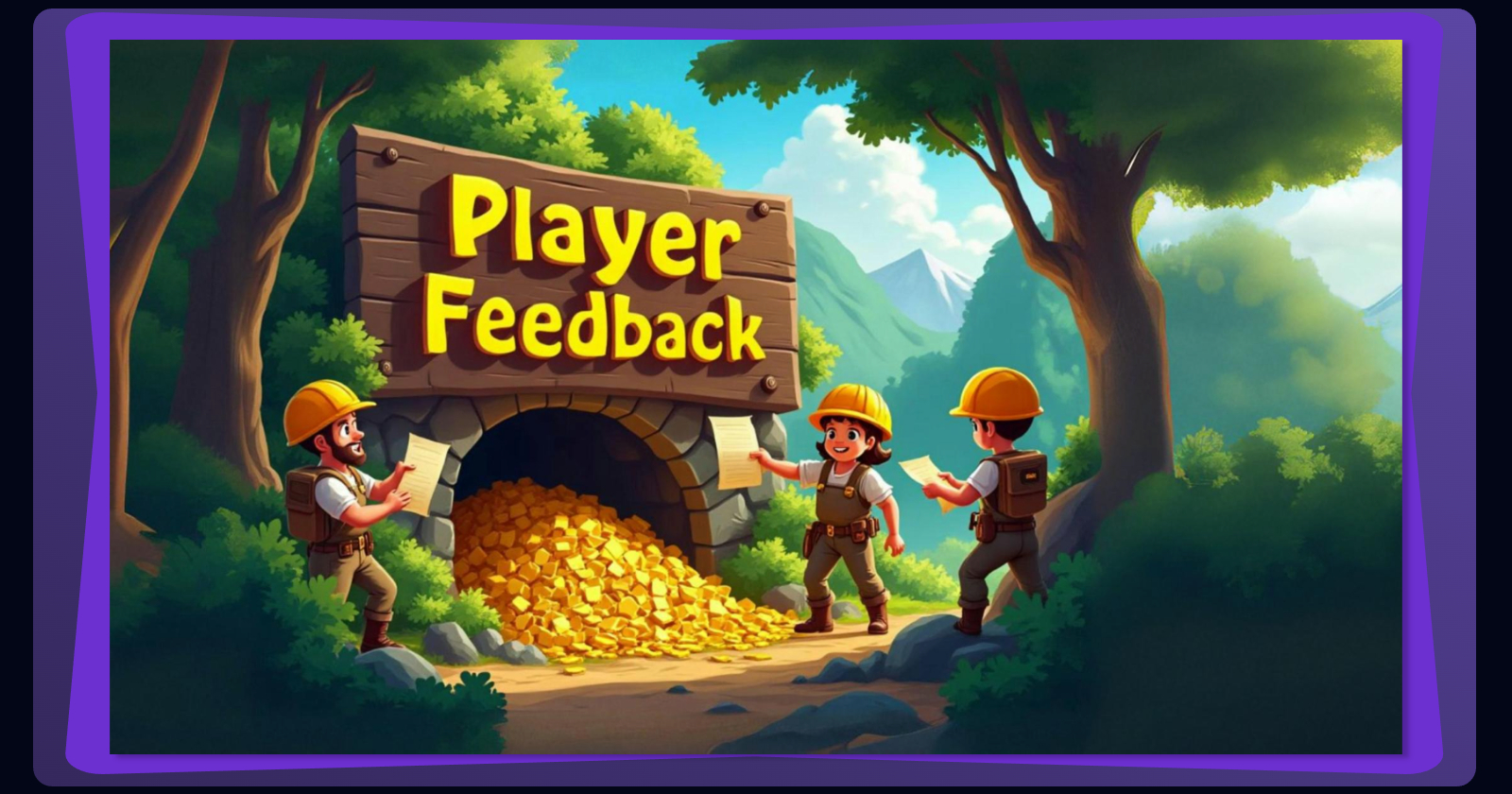Unlocking the True Value of Community Feedback
 Tim Smith
Tim Smith
In game development, feedback can be either your greatest asset or your biggest frustration—depending on how you use it. Studios often find themselves drowning in player input, patch complaints, and gameplay suggestions. Yet, far too many fail to capitalize on this treasure trove of insight. Here’s the thing: Feedback is only as valuable as how you act on it.
Studios Are Missing Out by Ignoring Feedback
Game developers frequently gather mountains of feedback but make the mistake of not fully capitalizing on it. We’ve seen this happen too many times. Just look at the Destiny 2 community, which regularly shares detailed feedback, yet it took Bungie multiple updates before they fully honed in on class balancing and gameplay tweaks . When feedback is ignored or brushed aside, studios miss out on making meaningful improvements.
Feedback isn’t just data; it’s the voice of the players who live and breathe your game. Studios that dismiss or underutilize this insight are leaving game-changing ideas on the table.
The Danger of Taking Feedback at Face Value
One of the biggest mistakes a studio can make is to take feedback at face value. Sure, you’ll get plenty of “this feature sucks” or “nerf this class” comments, but often, the real issues lie beneath the surface.
Let’s take a closer look at Diablo IV. Blizzard received mountains of complaints about class balance, but it wasn’t just about one class being too powerful. After analyzing trends in the feedback, they realized the root issue was how certain abilities were affecting the flow of combat during dungeon crawls . Addressing the deeper, systemic problems led to more satisfying gameplay changes than a simple damage nerf.
By digging deeper, you can uncover the real pain points, the stuff that’s not always obvious at first glance. It’s about looking for patterns, common threads, and underlying causes rather than slapping on band-aid fixes.
Managing Feedback Efficiently is Key
Then there’s the issue of quantity—too much feedback can be just as bad as too little. Studios like Larian (with Baldur's Gate 3) managed a mountain of feedback during early access . If not for their systematic approach to sorting and prioritizing, they'd have been overwhelmed. Instead, they refined their processes to focus on the most critical player pain points, rolling out updates that drastically improved player satisfaction.
To put it bluntly: If your team doesn’t find a way to organize and prioritize feedback, you’ll drown in a sea of suggestions, complaints, and random ideas. Optimizing workflows to filter out irrelevant or low-priority feedback is essential to avoid feedback paralysis.
Strategies to Make the Most Out of Community Input
Now that we’ve established the importance of digging deeper and optimizing workflows, how do studios ensure they’re using feedback effectively? Here are some quick strategies:
Categorize Feedback by Game Components: Break feedback down into categories like gameplay mechanics, audio, balance, combat systems, and in-game economy. This ensures that each team within the studio is tackling the feedback that’s most relevant to their expertise. For example, if several players report imbalance in the in-game economy, the economy design team can focus on adjustments without getting sidetracked by unrelated issues like combat system feedback.
Look for Patterns: A single player saying something might not be an issue, but if 1,000 players mention the same problem, you’ve found something worth exploring. Tools like Cohezion.ai can help spot these trends early.
Iterative Updates: Instead of trying to address every piece of feedback at once, focus on small, iterative updates. This keeps players engaged and shows them you’re listening.
Optimize Your Workflow or Risk Wasting Time
Having a steady stream of player feedback is great, but only if you can process it efficiently. This is where tools like Cohezion.ai come into play. Our platform is designed to manage, categorize, and analyze feedback in a way that not only saves time but also ensures higher-quality insights. You won’t be stuck sifting through vague, incomplete reports or irrelevant comments. Instead, you’ll be able to focus on the things that matter most—like how to improve your game, react faster, and enhance the player experience.
Feedback is the key to evolving your game, but only if you treat it as the goldmine it is. Understand it, prioritize it, and take action—your players will thank you for it.
Subscribe to my newsletter
Read articles from Tim Smith directly inside your inbox. Subscribe to the newsletter, and don't miss out.
Written by

Tim Smith
Tim Smith
Cofounder at Cohezion. Building the next generation of software that enables games studios to better connect with and understand their communities.